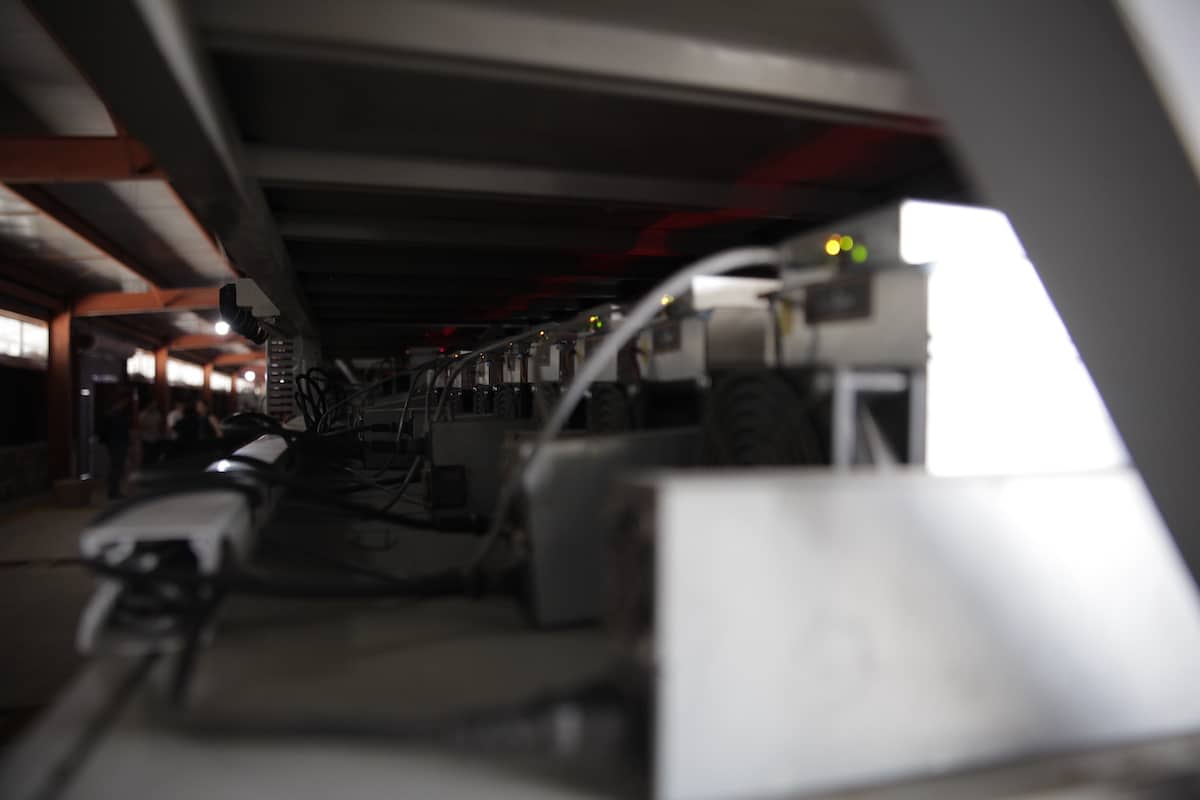Following the market turbulence in 2022, two major bitcoin asset managers – Galaxy Digital and NYDIG – have swiftly ramped up their bitcoin mining revenues in Q2 thanks to the bear market consolidation, public filings show.
As previously reported, NYDIG has emerged as a notable mining force after several of its debtors either defaulted on or extinguished their equipment financing loans and sent secured bitcoin miners back to NYDIG.
One such example is New York-headquartered Greenidge, which significantly reduced its debts in January by transferring the ownership of 2.8 EH/s to NYDIG and entering into a hosting deal with NYDIG so that the equipment would stay online. Greenidge’s Q2 reveals that NYDIG mined over 900 BTC already in the first half of this year via the hosting deal.
Argo Blockchain was also in debt to NYDIG with miner financing loans borrowed during the 2021 bull run. Interestingly though, instead of giving up on the equipment collateral, Argo sold its flagship Helios site in Texas to NYDIG’s rival Galaxy Digital for proceeds that were enough to extinguish the NYDIG debts. With the Helios site changing hands, Galaxy Digital has expanded its proprietary capacity which now powers its own and Argo’s machines.
NYDIG's Host
Following the January hosting agreement, Greenidge’s business has expanded to three parts: proprietary mining, data center hosting, and power generation. The data center hosting segment mined 393 BTC and 527 BTC in Q1 and Q2 respectively via third-party equipment, namely the miners now owned by NYDIG. The average hashrate throughout Q2 was 2 EH/s (~71% of the transferred 2.8 EH/s). Based on bitcoin’s average prices in the first two quarters, NYDIG may have booked revenue of about $23.7 million from the 920 BTC mined by its hosted miners.
As part of the five-year hosting agreement, NYDIG will reimburse Greenidge for the hosting segment’s direct power cost while paying for the fleet management and a profit-sharing gross. Greenidge reported a data center hosting revenue of $16.6 million for Q1 and Q2, suggesting NYDIG’s gross mining profit was $7.1 million with a margin of 30%. That also implies a bitcoin production cost of ~$18,000 and an estimated all-in hosting cost of $7c/kWh.
Galaxy Hybrid Mining
From 2021 to 2022, Galaxy's bitcoin mining business mainly consisted of equipment lease income and proprietary mining via hosting partners. But after the acquisition of Argo's Helios site in December 2022, its business model has changed to a combination of hosting and proprietary mining. That has had an immediate effect on the growth of its digital infrastructure segment as a whole.
The firm said in its Q2 report that its mining cost was $5.5 million mainly from power purchases, net of credits, which implies a gross margin of 65% and cost of production at around $9,000 to $10,000. Although such numbers referred to the combination of hosting and proprietary mining, the cost of production was somewhat aligned with what Argo disclosed for December 2022.
After a dip in proprietary mining revenue in Q1 as shown in the breakdown below, Galaxy appears to be on track to ramp up operational hashrate from its own miners, closing Q1 and Q2 with 0.9 EH/s and 1.66 EH/s respectively in proprietary hashrate.
Another interesting detail from Galaxy's Q2 report was a footnote, which clarified that its mining cost, on the book, was "offset by $5.6 million in unrealized gains on power purchase derivatives." As of June 30, Galaxy had a notional value of $30 million in commodity futures and an unrealized gain of $5.73 million.
NYDIG's New Site
On Aug 14, Greenidge announced that it has completed the 26 MW expansion at its South Carolina mining site, increasing the site’s total capacity to 44 MW.
According to the announcement, Greenidge is set to sell the whole South Carolina site to NYDIG to extinguish the remaining secured debts of $22 million. For NYDIG, the move is similar to Galaxy's pivot to a hybrid mining model rather than a pure asset-light mining strategy.
Until the sale is closed, Greenidge will host additional miners from NYDIG to fill the expanded 26 MW capacity, which is about enough to power the remaining 0.8 EH/s of the transferred 2.8 EH/s.
For Greenidge, the debt restructuring effort has effectively improved its working capital. It is expected to continue improving the working capital following the site sale and the elimination of the remaining NYDIG debts.
However, because NYDIG takes up the majority of Greenidge’s infrastructure capacity, Greenidge had to colocate some of its miners and that has sharply increased the cost of bitcoin production for its proprietary mining segment. The chart below provides a breakdown by Greenidge's proprietary mining, and power generation segments as well as, since Q1’23, the data center hosting segment.
While the cost of revenue for the data center hosting segment remains flat at $50/mWh, the cost of revenue for proprietary mining jumped to $83/mWh in Q2 due to higher monthly hosting fees paid to third parties. In April, Greenidge announced that it deployed 1,500 miners on its site while colocating nearly 7,000 miners at Core Scientific’s facilities in Georgia and Kentucky.
As a result, Greenidge’s cost of bitcoin production from its proprietary hashrate in Q2 increased to over $20,000 and was one of the highest among its public peers. NYDIG, on the other hand, was similar to the other two asset-light mining competitors Marathon and Bit Digital, whose cost of bitcoin is also estimated to be around $18,000/BTC. Galaxy Digital, at least for now, appears to be on the lower end of the range. The looming question for every operation is what happens after bitcoin’s halving because holding everything else equal, the scale of the chart below will have to double.


